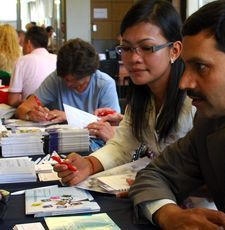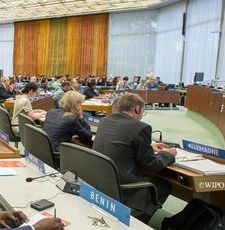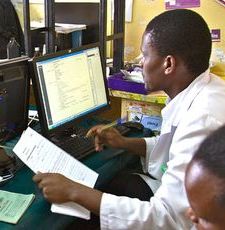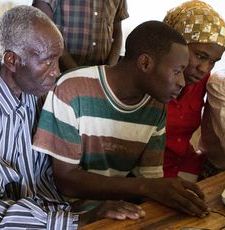ABOUT THE RESOURCE
In 2011-2013 EIFL provided financial support to 34 projects that implemented national and institutional open access (OA) advocacy campaigns to reach out to research communities and OA publishing initiatives.
Through small grants and support from their own institutions, the projects engaged in a wide variety of campaigns and activities, including: holding workshops, creating websites, building institutional OA repositories, creating e-learning courses, and implementing OA publishing platforms.
The case studies resulting from the projects reveal impressive first-time achievements and will help increase the availability of research literature in developing and transition countries.
Learn more about the key achievements for this institutional OA campaign in Latvia below. You can access the full case study (strategies, tactics and tools, success stories and lessons learnt) by clicking on the download button.
About the project in Latvia
The faculty members of the University of Latvia (UL) is the largest research community in the country involved in scientific publishing. LU academic staff annually publishes on average 3, 000 research papers, but these are not widely available. So it is important to collect these research papers and provide access to them via OA institutional repository (IR).
The first OA event took place in the country in 2009 (“OA: Maximising Research Quality and Impact” on 22 October 2009, organised by the LU, the State agency "Culture information systems" (KIS), and EIFL) and brought together researchers, research managers and policy-makers, journal editors and publishers, librarians, and ICT specialists to discuss the latest developments of the OA movement and to debate how to raise the visibility of research outputs from Latvian universities and research organisations, and how to build their capacities in global knowledge sharing. In his welcoming speech, Prof. Indrikis Muiznieks, LU vice rector, confirmed, that LU is looking forward to exploring the benefits of OA as a viable solution to existing problems in scholarly communication.
Many researchers in Latvia already practice OA: publish in OA journals and self-archive in subject repositories (such as PubMed Central, ArXiv, Cogprints etc.). There were some initial steps that have been taken to support OA policy in Latvia. The UL provides free access to the Scientific papers published by the UL Press via the University portal. Theses (full texts and their summaries) defended at the UL since 2006 are also made freely available in the database Theses of the UL. To advance OA developments in the country the UL decided to set up an OA IR in 2011.
Key achievements
- An OA IR was launched in May 2011; currently there are 390 (and gradually increasing) full text publications deposited.
- 100 faculty members and students as well as librarians and information professionals in Latvian libraries attended lectures and an international workshop, resulting in increased understanding of OA and an increased awareness about advantages offered by OA repositories.
- 25 people attended public discussions about OA and copyright management.
- Print and online materials in Latvian were created and widely distributed. A wide range of information about Open Access in Latvian is now available for researchers and students.
- The University of Latvia staff are now better informed about OA.
SHARE / PRINT









